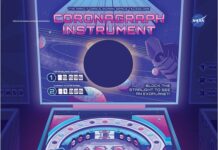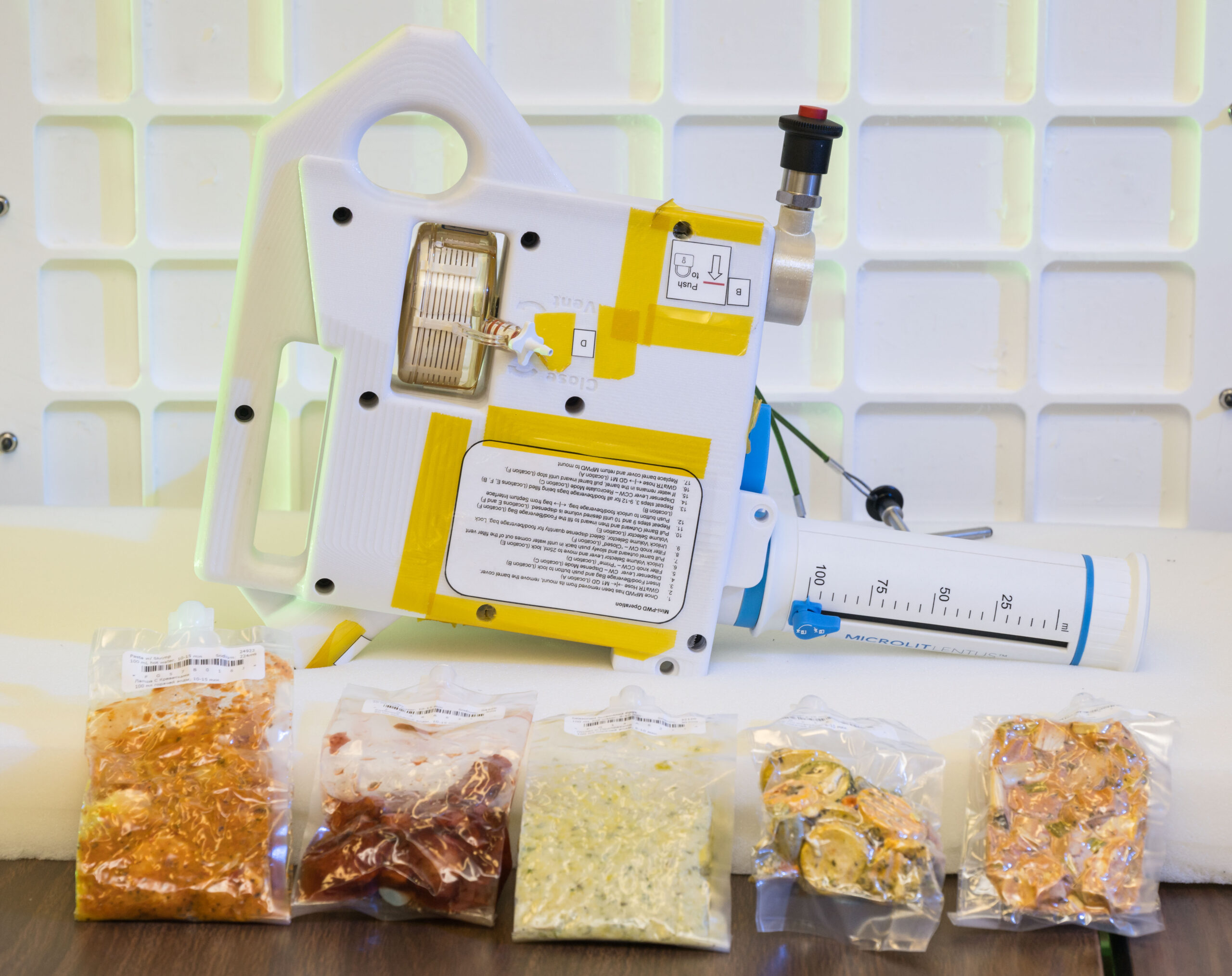NASA’s Innovative Solution to Rehydrating Meals on the Artemis IV Mission
NASA is currently developing a handy device designed to assist astronauts in rehydrating their meals aboard the Gateway Lunar Space Station during the ambitious Artemis IV mission. This innovation is part of NASA’s continuous efforts to ensure that astronauts have the necessary tools and resources to sustain themselves during deep space missions.
The Artemis IV mission is a significant milestone in space exploration, aiming to establish a human presence on the Moon. As part of this mission, international teams of astronauts will live on the Gateway, humanity’s first lunar space station. This station will orbit the Moon and serve as a staging point for further lunar exploration and potentially missions to Mars.
One of the critical challenges for astronauts living on the Gateway is ensuring they have access to nutritious meals. To address this, NASA engineers have been developing the Mini Potable Water Dispenser. This device, which resembles a toy water soaker, is designed to manually dispense water for various purposes, including hygiene, rehydrating food, or simply drinking. The dispenser’s compact, lightweight, and portable design makes it ideal for the Gateway’s relatively small size and remote location compared to the International Space Station, which orbits closer to Earth.
The development of the Mini Potable Water Dispenser is being led by a team at NASA’s Marshall Space Flight Center in Huntsville, Alabama. The team understands that food is not just about providing the necessary nutrients to keep astronauts alive but also about providing comfort and a sense of normalcy.
“Food doesn’t just provide body nourishment but also soul nourishment,” said Shaun Glasgow, project manager at Marshall. “So ultimately this device will help provide that little piece of soul nourishment. After a long day, the crew can float back and enjoy some pasta or scrambled eggs, a small sense of normalcy in a place far from home.”
The significance of this device goes beyond just its practical application. It represents the ingenuity and adaptability required for deep space exploration. As astronauts venture further from Earth, the challenges they face become increasingly complex, and solutions like the Mini Potable Water Dispenser are essential for their well-being.
The dispenser is a testament to NASA’s commitment to pushing the boundaries of space exploration. Its design is a blend of practicality and innovation, showcasing how even the simplest of tools can have a profound impact on the success of a mission. The ability to rehydrate meals efficiently and safely is crucial for maintaining the health and morale of astronauts, and this device provides a reliable solution.
In addition to its primary function, the Mini Potable Water Dispenser also highlights the importance of sustainability in space missions. By allowing astronauts to rehydrate dehydrated meals, the device helps reduce the need for transporting large quantities of pre-packaged food, thus saving valuable space and weight on the spacecraft. This is particularly important for missions like Artemis IV, where every ounce of weight needs to be carefully calculated and managed.
The development of such devices is also a stepping stone towards future missions to Mars and beyond. As NASA continues to explore the possibilities of long-duration space travel, the lessons learned from the Artemis missions will be invaluable. The experience gained from using the Mini Potable Water Dispenser and other similar innovations will help pave the way for more advanced technologies and solutions in the future.
Moreover, the collaborative nature of the Artemis missions, involving international teams of astronauts, underscores the global effort required for successful space exploration. The Gateway Lunar Space Station will serve as a hub for international cooperation, with contributions from various space agencies around the world. This collaboration will not only enhance the capabilities of the mission but also foster a sense of unity and shared purpose among the participating nations.
In terms of technical specifications, the Mini Potable Water Dispenser is designed to be user-friendly and efficient. Its manual operation ensures that it can be used even in the event of a power failure, providing a reliable backup for the astronauts. The dispenser’s lightweight construction makes it easy to handle in the microgravity environment of space, and its compact size ensures that it doesn’t take up valuable space on the Gateway.
To further illustrate the importance of this innovation, it’s worth considering the broader context of space travel and the challenges faced by astronauts. In the harsh environment of space, maintaining physical and mental well-being is crucial. The ability to enjoy a hot meal can provide a significant morale boost, helping astronauts cope with the stresses and isolation of long-duration missions. The Mini Potable Water Dispenser, by enabling astronauts to rehydrate and enjoy a variety of meals, plays a vital role in supporting their overall well-being.
Additionally, the development of this device is a reflection of NASA’s broader commitment to sustainability and resource management. By optimizing the use of available resources and minimizing waste, NASA is setting a precedent for future space missions. This approach not only benefits the astronauts on the Gateway but also has implications for sustainable practices on Earth. The technologies and solutions developed for space missions often find applications in various industries on our planet, contributing to advancements in sustainability and efficiency.
In conclusion, the Mini Potable Water Dispenser is a remarkable innovation that exemplifies NASA’s dedication to ensuring the success of the Artemis IV mission and future deep space explorations. Its development highlights the importance of practical, user-friendly solutions in overcoming the challenges of space travel. As humanity continues to push the boundaries of exploration, devices like this will play a crucial role in supporting the health, morale, and overall well-being of astronauts, paving the way for a future where long-duration space travel becomes a reality.
The Artemis IV mission and the Gateway Lunar Space Station represent a new era in space exploration, one that is characterized by international collaboration, technological innovation, and a commitment to sustainability. The Mini Potable Water Dispenser is just one example of the many ingenious solutions being developed to support these ambitious endeavors. As we look to the future, the lessons learned and technologies developed during the Artemis missions will undoubtedly shape the trajectory of human space exploration for years to come.
For more Information, Refer to this article.
































